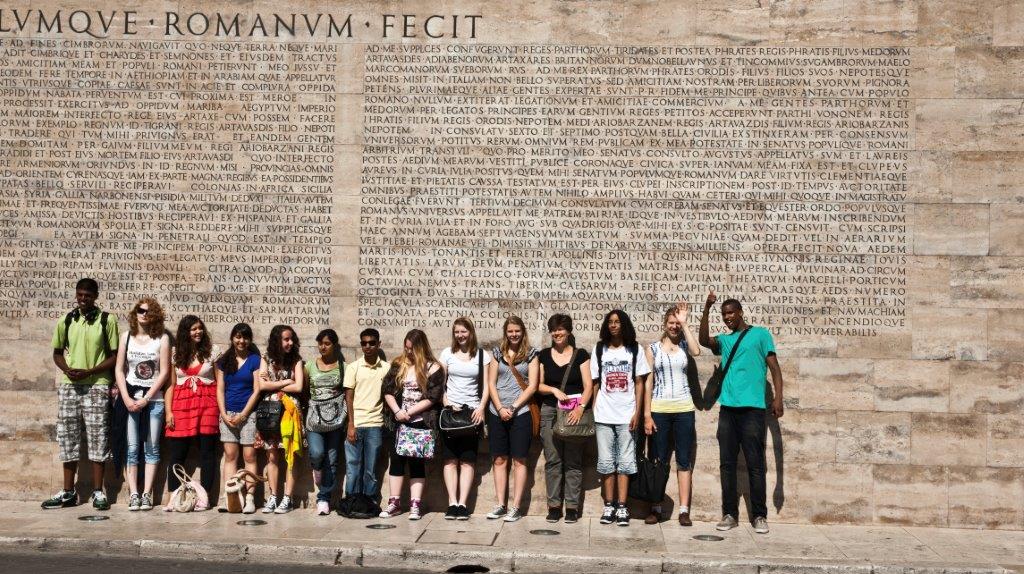
History tells stories about people, places and things to help explain to young people of any age why the world is as it is as they grow up and begin to question it.
Schools will choose different periods and settings and topics to cove during different Key Stages, but all of them are pretty well guaranteed to be rooted in actual places that can be visited, explored and enjoyed.
It has been a curious fact that for many years primary classes have studied the Roman, Anglo-Saxon and medieval periods, while secondary school syllabuses have been more engaged in post-medieval periods. For a while secondary courses involved a great deal of ‘topic work’. While this discipline still exists, the recent examination syllabuses have returned to an emphasis on historical periods and links.
But all periods and topics provide fantastic opportunities for school visits. We are so lucky that so many general and specialist museums and visitor centres exist in the UK. The problem is not a shortage of possibilities but how one sifts through the available opportunities to make choices.
The Historical Association website carries information about course, conferences, study tours, and the Association has published ‘The Historian’ magazine for many years. Handsam is also happy to help, please contact us on 03332 070737 or email [email protected].
Most venues will have teaching materials and activities geared to students’ different ages and aptitudes whether at primary or secondary level. All of them will set out to develop students’ ability to understand, analyse and evaluate key features and characteristics of historical periods and events studied.
Some venues will be easy to identify because they fit neatly with the period and topic being studied but others may offer new possibilities, not least to the teachers themselves. Teachers need and deserve their own stimulation.
Over the next four years there will be an upsurge in visits to the First World War battlefields. Because of this there will be an increase in companies offering visits and requirement for battlefield guides, especially in northern France and Belgium. There are bound to be discrepancies in guides’ knowledge and experience. Close research into the credentials of the company you are contracting with, and the company’s guarantees about guides, will ensure that your group will not be disappointed.
Main organisations:
The Historical Association
Commonwealth War Graves Commission
Inclusion: NASEN
Thought of visiting?
Roman Vindolanda and Roman Army Museum at Hadrian’s Wall
Viriconium, Wroxeter, Shropshire
The London Museum
The Jorvik Viking Centre, York
Winchester Discovery Centre
National Museum, Cardiff
Offa’s Dyke Trail and Chirk Castle
The National Trust
Bannockburn Heritage Centre
The National Trust for Scotland
Youth Hostels Association
Historic Scotland
Clan Donald Visitor Centre, Isle of Skye
Bosworth Battlefield Visitor Centre
Haus am Checkpoint Charlie, Berlin
Hull and East Riding Museum
Soane Museum, London
Exeter Cathedral Education Centre
Ironbridge Gorge Museums
Royal Armouries Museum
The National Maritime Museum, Greenwich
The Scottish Maritime Museum
The Mary Rose Museum, Portsmouth
Portsmouth Historic Dockyard
East Anglia Railway Museum, Colchester
The National Tramway Museum, Matlock
The Museum of Rugby at Twickenham
Windermere Steamboat Museum, Cumbria




